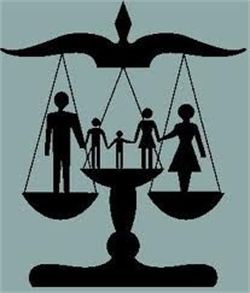
The court makes legal decision making (formerly known as child custody) decisions based upon what is in the best interest of the child. Legal decision making can be sole or joint. Legal decision making is the legal right to make the major life decisions for the child, such as decisions pertaining to health, education, and welfare. Sole legal decision making means that the parent with sole legal decision making makes the decisions. Joint legal decision making means that the parents make these decisions together. Some judges will award joint legal decision making, but designate one parent as a final decision maker in the event that the parents cannot agree.
Arizona law requires the court to make the legal decision making decision based upon the child's best interest, taking into account all relevant factors, including the following factors:
1. The past, present and potential future relationship between the parent and the child.
2. The interaction and interrelationship of the child with the child's parent or parents, the child's siblings and any other person who may significantly affect the child's best interest.
3. The child's adjustment to home, school and community.
4. If the child is of suitable age and maturity, the wishes of the child as to legal decision-making and parenting time.
5. The mental and physical health of all individuals involved.
6. Which parent is more likely to allow the child frequent, meaningful and continuing contact with the other parent. This paragraph does not apply if the court determines that a parent is acting in good faith to protect the child from witnessing an act of domestic violence or being a victim of domestic violence or child abuse.
7. Whether one parent intentionally misled the court to cause an unnecessary delay, to increase the cost of litigation or to persuade the court to give a legal decision-making or a parenting time preference to that parent.
8. Whether there has been domestic violence or child abuse pursuant to section 25-403.03.
9. The nature and extent of coercion or duress used by a parent in obtaining an agreement regarding legal decision-making or parenting time.
10. Whether a parent has complied with the requirement to take a parent information class.
11. Whether either parent was convicted of an act of false reporting of child abuse or neglect.
No preference is given based on a parent's sex. If legal decision making is contested, all other issues in the case are decided first. Joint legal decision making may be awarded if the parents provide a written agreement and the court finds it's in the best interest of the child.
The court looks at these factors in reviewing a proposed agreement:
- There should be no evidence of coercion or duress
- Parents' ability for ongoing commitment to their child
- The joint legal decision making agreement is logistically possible

A parent who is not granted legal decision making is entitled to visitation provided the child's well-being isn't at risk. The Parent Child Access Guidelines outline the minimum frequency and duration for visitation, barring cause for restrictions. The Guidelines are based on certain premises, including that both parents are fit and desire to have an ongoing relationship with the child and that it is usually in the child's best interest for each parent to have frequent, meaningful and continuing access to the child. In addition, grandparents and great-grandparents may be awarded visitation rights if it is in a child's best interests.
Once the judge signs the legal decision making order and files it with the court clerk, it is binding on both parents. Unless a child is facing serious endangerment, you must wait one year to seek a modification. You can seek modification of joint legal decision making orders at any time based on domestic violence. A six-month wait is required for modification of parenting time if the request is based on failure to comply with the order.